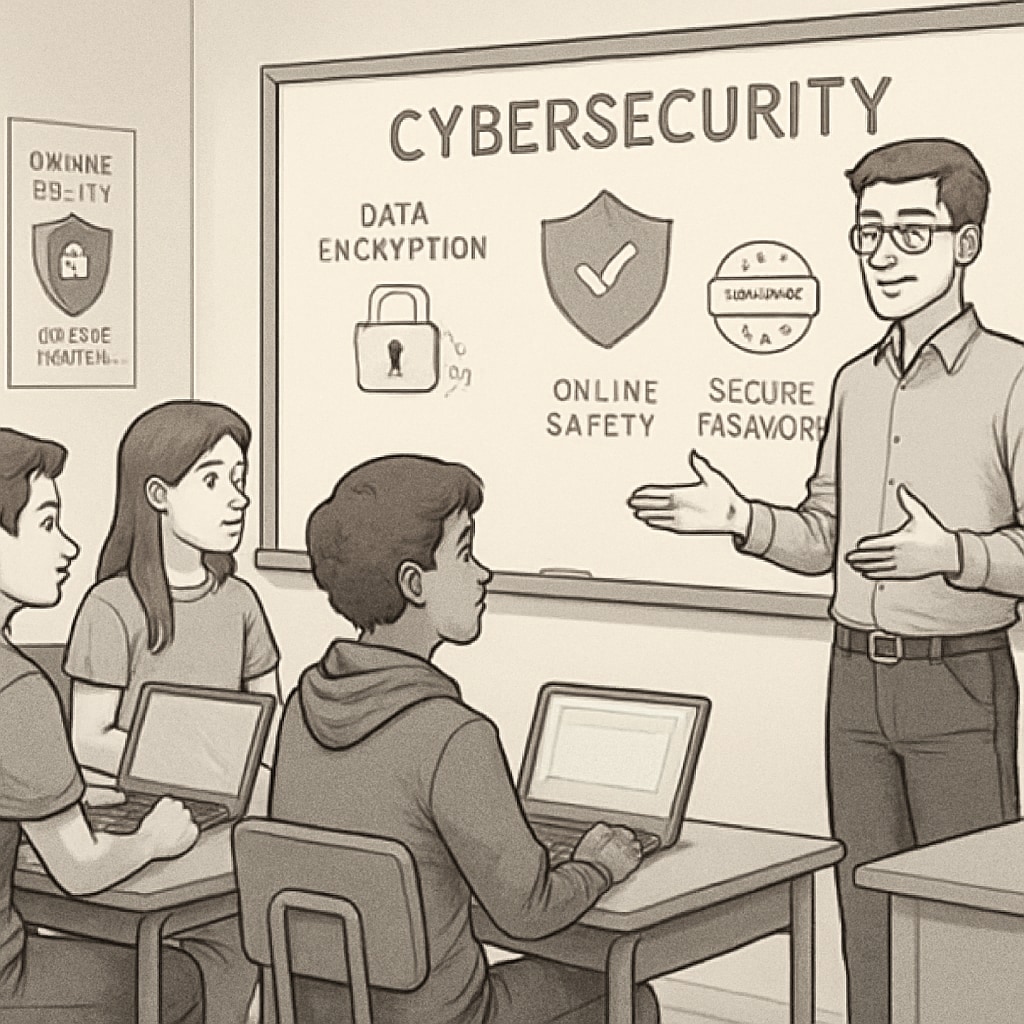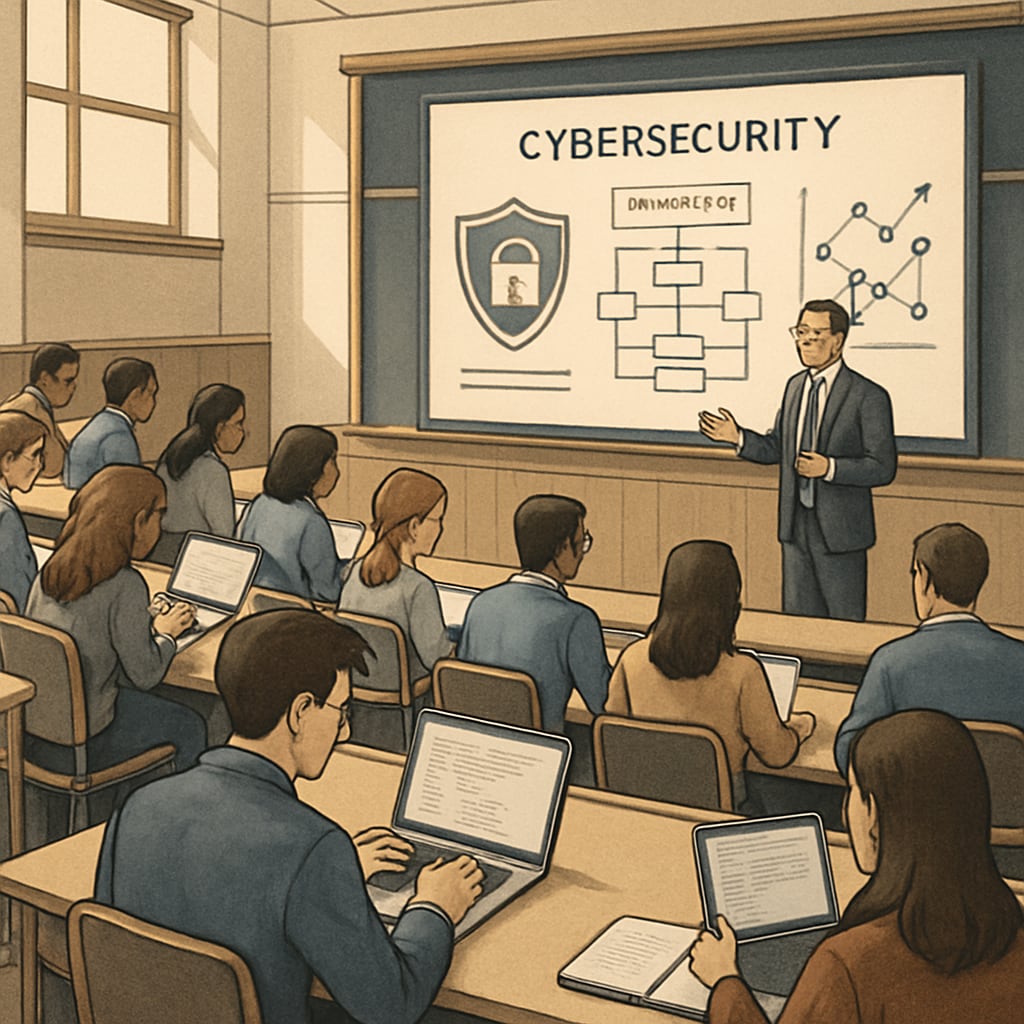In today’s digitally connected world, the reputation of a university can significantly affect a graduate’s employment prospects, particularly in high-demand fields such as cybersecurity. Employers often associate a prestigious university with superior education and skills, making university reputation a key factor in job placement. However, the foundation for a successful cybersecurity career begins long before college—during the K12 education years. By fostering cybersecurity awareness and career planning early, students can better align their goals with future opportunities. This article delves into the role of K12 education in shaping cybersecurity pathways and examines the lasting impact of university reputation on career outcomes.
The Role of Early Education in Cybersecurity Awareness
Cybersecurity is no longer a niche field; it is a critical component of modern society. As such, it is essential to introduce basic cybersecurity concepts during the K12 education phase. Early exposure ensures that students not only understand the importance of digital safety but also develop an interest in the field. For example, schools can incorporate lessons on password security, data privacy, and the risks of online threats into their curricula.
Furthermore, hands-on activities such as coding workshops or simulated cybersecurity challenges can inspire students to explore the technical aspects of the field. By cultivating these interests early, educators can help students identify cybersecurity as a viable career path. This proactive approach is particularly important given the growing global demand for cybersecurity professionals.

University Reputation: A Gateway to Cybersecurity Careers
While early education lays the groundwork, the reputation of the university a student attends can significantly influence their career trajectory. Prestigious universities often have well-established cybersecurity programs, state-of-the-art facilities, and strong industry connections. These factors can give graduates a competitive edge when entering the job market.
For instance, universities with high rankings in technology and engineering are frequently targeted by top cybersecurity firms for recruitment. These institutions not only equip students with technical know-how but also provide opportunities for internships, mentorships, and networking events. As a result, attending a reputable university can open doors to high-profile roles in government agencies, multinational corporations, and leading tech companies.
However, it is crucial to note that university reputation alone does not guarantee success. Employers also value practical experience, problem-solving skills, and a demonstrated passion for the field. Therefore, students should focus on building a well-rounded portfolio that complements their academic credentials.

Practical Steps for K12 Schools and Students
To prepare students for successful careers in cybersecurity, K12 schools and educators can take the following actionable steps:
- Integrate cybersecurity topics: Include lessons on digital literacy, online ethics, and the basics of cybersecurity within the standard curriculum.
- Encourage extracurricular participation: Promote involvement in cybersecurity clubs, coding competitions, and tech fairs to spark interest and develop skills.
- Partner with industry professionals: Invite cybersecurity experts to speak at schools or conduct workshops, offering students real-world insights.
- Provide career counseling: Offer guidance on relevant higher education programs and scholarships, emphasizing the importance of university reputation and practical experience.
By implementing these measures, schools can help students navigate the complex landscape of cybersecurity education and employment. In turn, students will be better equipped to make informed decisions about their academic and professional journeys.
The Long-Term Impact of University Choices
As students transition from K12 education to higher education, their choice of university becomes a pivotal decision. Universities with strong reputations in cybersecurity often provide access to cutting-edge research, influential alumni networks, and industry partnerships. These advantages can significantly enhance a graduate’s employability.
However, students should also consider other factors, such as the university’s specific cybersecurity program, faculty expertise, and opportunities for hands-on learning. A well-rounded approach to education—combining academic excellence with practical skills—can ensure a sustainable and rewarding career in cybersecurity.
Ultimately, the journey to a successful cybersecurity career begins with early exposure and thoughtful planning. By fostering cybersecurity awareness during the K12 years and aligning university choices with career goals, students can position themselves for long-term success in this dynamic and vital field.
Readability guidance: This article uses short paragraphs, clear subheadings, and lists to ensure accessibility. Active voice and transitional phrases have been employed to enhance readability and coherence.


